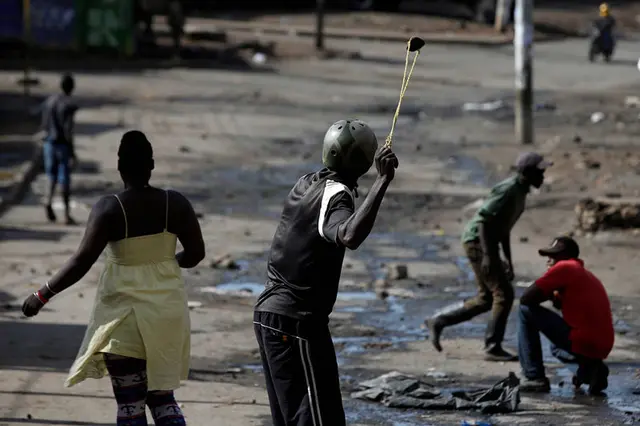There was a certain symmetry about the weird yet wonderful careers of Graeme Hick and Mark Ramprakash. Unrelenting runscorers at domestic level, they were England’s 90s nearly men, with patchy international careers that did neither’s extravagant gifts justice.
Both were in and out of the side, shunted up and down the order in the bad old days before central contracts.
They made their Test debuts together, against West Indies at Headingley in 1991, and England won. Ramprakash made a pair of 27s, which was a sign of things to come – it would end up being his Test average (although that went up to 42 against Australia).
He would last a year longer in Test cricket than Hick, finishing in April 2002, but playing 13 Tests fewer, and Hick’s average at least sneaked into the 30s.
At first-class level both had averages deep in the 50s, and made a very neat 250 centuries between them (Hick 136 to Ramprakash’s 114), amid 76,771 runs and look very likely to be the last two batsmen to register 100 first-class hundreds.
And so to Townsville, where the tangle continues. Ramprakash is England’s batting coach, who as a frightfully fit 48-year-old is a tireless exponent of the dog-thrower, is available for a net at all hours and would probably still rather be hitting than throwing.
Those who have seen him play charity matches since retirement know that to be true. Hick, looking every bit as fit, is the enemy now. He is coaching England’s final opponents before the first Ashes Test, a Cricket Australia XI, and is Australia’s batting coach having lived in the country for six years.
Hick appeared for media duties in the rain on Tuesday. There were some gentle interrogatory throw-downs – nothing it has to be said, like the real short-pitched horrors Ramprakash was pinging at England’s batsmen – about his promising young charges, then a few familiar faces took a trip down memory lane.
“Oh, we don’t have to go back on all that do we?” Hick said with a smile when asked about his and Ramprakash’s careers. “I thought we’d gone past that. We’ve got an Ashes series to look forward to …”
Hick appeared neither surprised at the line of questioning – although it’s hard to imagine that any of the other members of the top 10 first-class century-makers of all time (Hick is No8) were often asked much about “what went wrong” – nor to carry any great regrets.
There are things he wishes he knew then – “I wouldn’t have listened to the media as much as I did” – and aspects of the top level, such as the brutal level of analysis and comment , that he explains with empathy to young players, like Matt Renshaw, who looks likely to lose his opener’s spot after scoring 69 runs in six innings this Australian summer. Test disappointment – in between all the extraordinary achievements – surely made both men better coaches.
“Fortunately, yes,” said Hick when asked if his international career feels a distant memory. “I can sleep at night these days. I’ve never been one to reflect and look back and feel sorry for myself. I had great opportunities and loved what I did. I reflect on it now in terms of some of the things I did and decisions I made to try to help people in what they go through, particularly the younger players.
“Quite often during those moments I think: ‘Yes, that’s what I went through and this is what helped me.’ It doesn’t mean it necessarily helps someone else but it’s one of the challenges I’ve enjoyed in coaching.
You have to understand how important your relationship with each player is and how each one is different. If you can create a good relationship and feel you can gain some leverage and pass on some knowledge. Of course they don’t have to take it.”
Does he ever pause to wonder if his and Ramprakash’s careers would have panned out differently with the stability afforded to modern players? “I don’t know,” he says. “Central contracts came in as I was going out and there’s so much cricket now it’s great to have them to control it.
As I said I’m not someone who looks back and says, ‘If only.’ Why would I have regrets? It’s for me to deal with and I’ve dealt with that myself. I know I tried hard and worked hard but I don’t dwell on it. I count myself as very fortunate to have had the chances I had.”
Hick and Ramprakash are as different as their careers are similar, but Hick says he is looking forward to catching up over their “common ground”: the production of runs and, now, run-makers.
(GUARDIAN)
 简体中文
简体中文













